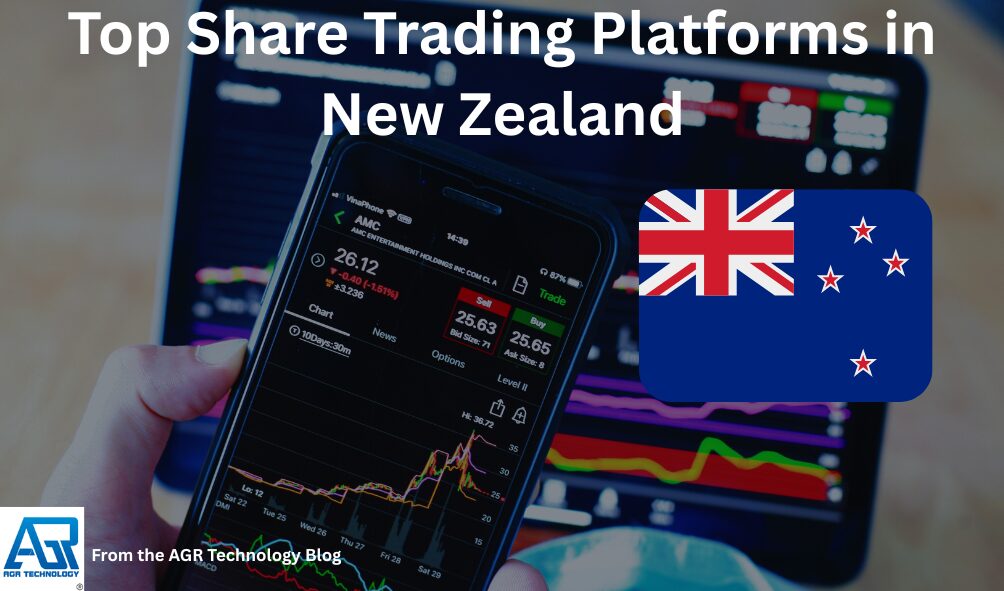Disclaimer: General information only. All kinds of investment (particularly trading CFDs, commodities, and FX) involve significant risk, including the possibility of losing more than the amount invested, as well as market volatility and liquidity hazards. Past performance does not guarantee future results. Most investors will find such operations unsuitable.
Share trading platforms have transformed how New Zealanders invest in financial markets. These online tools and mobile apps make it simple to buy and sell shares, manage portfolios and track investment performance from anywhere. With most platforms operating primarily online, investors can access global markets at their fingertips while some still offer phone support for those who prefer personal assistance.
The New Zealand market offers several popular platforms including Sharesies, Hatch, Tiger Brokers and Stake. Each platform provides unique features, fee structures and access to different markets. While many platforms offer access to US stock exchanges, fewer provide entry to UK or other international markets. The right platform depends on individual investment goals, preferred markets and trading style.
Online trading has democratized investing by making it accessible to a wider audience. These platforms empower individuals to take control of their financial future without the traditional barriers of high minimum investments or complex processes. Whether someone’s interested in local NZ shares or international markets, there’s a platform designed to meet their needs.
Top Share Trading Platforms in New Zealand: Comprehensive Overview for February 2026
New Zealand’s share trading landscape features several prominent platforms that cater to different investor needs and preferences. Each platform offers distinct advantages in terms of market access, fees, and user experience.
1) Blackbull Markets
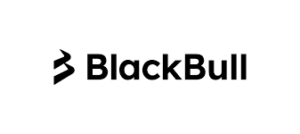
2) Etoro
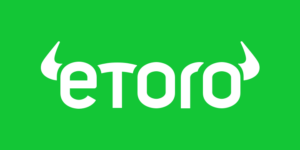
eToro is a globally recognized online trading platform known for its easy-to-use interface and extensive selection of financial products. Founded in 2007, eToro offers users the ability to trade a wide range of assets, including stocks, forex, and cryptocurrencies. However, eToro’s offerings are significantly limited in New Zealand. Due to local regulations, New Zealand residents can only access eToro’s cryptocurrency trading services.
While eToro’s platform is renowned internationally for copy trading and social trading features, these are unavailable in New Zealand. Additionally, the platform no longer supports CFDs or stock trading for New Zealand residents, following regulatory changes. Instead, users in New Zealand can trade a variety of popular cryptocurrencies, such as Bitcoin, Ethereum, and Cardano, on eToro’s standard trading platform or through its eToroX exchange and wallet.
eToro has its unique selling points, particularly for those interested in cryptocurrency trading, but its limited functionality in New Zealand and higher fees may make it a less favorable choice for some users.
Pros:
- User-Friendly Platform: eToro is known for its intuitive and easy-to-navigate interface, making it accessible even for beginners in cryptocurrency trading.
- Cryptocurrency Trading Options: eToro supports 30 popular cryptocurrencies, including Bitcoin, Ethereum, and Dogecoin. New Zealand users can trade these assets directly on the platform or withdraw them to the eToroX wallet.
- Secure and Regulated: eToro is regulated in various jurisdictions, providing a level of security for users, although it is not licensed by the New Zealand FMA.
- Multiple Deposit Methods: New Zealand users can fund their eToro accounts through various payment options like PayPal, credit/debit cards, and bank transfers, providing flexibility.
Cons:
- Limited Product Offerings: Due to regulatory restrictions, eToro no longer supports CFDs, stocks, or forex trading for New Zealand residents. The platform’s cryptocurrency offerings are the only available service.
- High Fees and Spreads: eToro does not charge commission on cryptocurrency trades but does charge high spreads, starting at 0.75% for Bitcoin. Withdrawal fees and currency conversion fees add to the cost.
- No Copy Trading for Kiwis: One of eToro’s flagship features, copy trading, is unavailable in New Zealand due to the platform’s lack of licensing for CFDs and stock trading.
- Inactivity and Withdrawal Fees: eToro charges a US$5 withdrawal fee, and an inactivity fee of US$10 is applied if there is no account activity for 12 months.
- Limited Customer Support: As a global platform, eToro’s customer support may not always be as responsive or tailored to New Zealand users, which could cause frustration for those seeking quick assistance.
Final Thoughts on eToro for New Zealanders
eToro offers a reliable cryptocurrency trading platform with competitive features for New Zealanders, but it comes with limitations. While the user-friendly interface and access to popular cryptocurrencies are appealing, the higher fees and lack of other investment products such as stock trading and copy trading may deter some users. For those looking for a more comprehensive trading experience, local alternatives such as Swyftx or Easy Crypto might be more suitable.
PDS Link: https://www.etoro.com/wp-content/uploads/2024/08/20240811_PDS-2.pdf
3) Tiger Brokers
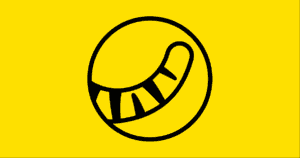
Tiger Brokers (NZ) stands out in the crowded landscape of online brokers, offering New Zealand investors a low-cost, feature-rich platform to trade stocks, ETFs, derivatives, and more. With a unique global market access model, Tiger Brokers offers investment opportunities in the U.S., Hong Kong, Singapore, Australia, and China A-Shares, all through a single account. Whether you’re a beginner or an experienced investor, the platform caters to diverse needs with its easy-to-use interface, zero-fee trading options, and advanced research tools powered by AI.
From providing access to over 7,000 stocks to offering unique financial products like futures contracts, options, and warrants, Tiger Brokers is a one-stop shop for international investing. The platform is especially appealing for those seeking cost-effective solutions, with its zero transaction fees for selected trades and zero currency exchange fees up to NZ$2,000 every month.
Tiger Brokers is perfect for investors looking for both simplicity and sophistication in their trading experience, making it an excellent choice for those wanting to diversify their portfolios across global markets.
Pros:
-
Low-Cost Trading
Tiger Brokers offers competitive pricing with zero brokerage fees on up to four US and ASX share trades each month. The platform also has a low 0.35% FX fee and zero currency exchange fees for the first NZ$2,000 exchanged monthly. -
Global Market Access
Access over 7,000 stocks and financial products from global markets including the U.S., Hong Kong, Singapore, Australia, and China (A-Shares). Tiger Brokers is a standout for investors seeking exposure to diverse regions and asset classes. -
Wide Range of Financial Products
Beyond stocks and ETFs, Tiger Brokers offers complex instruments like stock options, futures, warrants, and CBBCs, giving investors more tools to hedge or grow their portfolios. -
AI-Powered Research Tools
With features like TigerGPT, an AI-driven research assistant, Tiger Brokers provides investors with real-time data, helping them make better-informed decisions and offering strategic insights for advanced traders. -
Virtual Trading for Beginners
New investors can practice without risk using the demo account with up to USD 100,000 in virtual funds. This is a great way to test out strategies before trading with real money. -
24/5 U.S. Stock Trading
Unlike many other platforms, Tiger Brokers allows trading on U.S. stocks during pre-market and after-market hours, providing flexibility to capitalize on price movements outside regular trading hours. -
Customizable User Interface
Whether you’re new to investing or an experienced trader, the customizable interface offers a tailored experience. You can choose between beginner-friendly modes or more advanced settings depending on your preference.
Cons:
-
Complex Products for New Investors
While the platform offers an extensive range of products, some, like options and futures, may be overwhelming or high-risk for beginners. Investors should have a solid understanding of these instruments before engaging with them. -
Platform May Be Overwhelming for Some
Given its broad selection of tools, markets, and order types, Tiger Brokers may feel complex to those who prefer simpler, more intuitive platforms like Sharesies or Hatch. -
Not Suitable for Local-Only Investors
If you’re looking to only invest within New Zealand or Australia, Tiger Brokers may not be the best choice due to its international focus. Local platforms may offer more tailored services for purely local markets. -
Limited Local Educational Resources
Although the platform provides helpful resources for global investing, the local educational material (specific to New Zealand) could be more extensive for beginner investors seeking foundational knowledge. -
Derivatives Are High Risk
While Tiger Brokers offers a diverse range of financial products, some like derivatives (futures, warrants, and CBBCs) are considered high-risk, and may not be appropriate for all investors.
Conclusion
Tiger Brokers (NZ) is an excellent choice for cost-conscious investors seeking access to global markets and a wide array of financial products. Its low-cost trading, advanced research tools, and flexible trading options make it a standout platform in New Zealand. However, it’s important to be aware of the complexities and risks associated with certain products, especially for beginners. If you’re looking for a comprehensive platform with competitive pricing and global reach, Tiger Brokers is certainly worth considering.
4) Avatrade
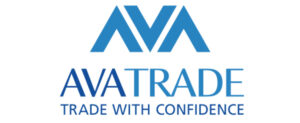
AvaTrade is a well-established, globally regulated forex and CFD broker founded in 2006, offering a comprehensive suite of trading instruments including forex, stocks, commodities, indices, cryptocurrencies, ETFs, bonds, and futures. With a minimum deposit of just $100, AvaTrade makes trading accessible to both beginners and experienced traders. The platform supports a range of industry-leading trading software such as MetaTrader 4 and 5, AvaOptions, AvaFutures, and its proprietary WebTrader and mobile app, catering to diverse trading styles. AvaTrade stands out with its unique risk management tool, AvaProtect, which offers partial loss coverage, and a variety of social and copy trading options including AvaSocial and DupliTrade. It holds multiple regulatory licenses from top-tier authorities including ASIC, CBI, FSCA, and FFAJ, ensuring a secure trading environment. While it excels in educational resources and multilingual customer support, it does not accept US clients and lacks FCA authorization, which may influence traders based in certain regions.
Pros:
-
Regulated by multiple top-tier authorities (ASIC, CBI, FSCA, FFAJ)
-
Wide range of tradable assets including forex, crypto, commodities, and futures
-
Supports popular platforms: MT4, MT5, AvaOptions, WebTrader, AvaFutures
-
Innovative risk management with AvaProtect to limit trading losses
-
Strong educational resources and multilingual customer support
-
Competitive fixed and floating spreads with no commissions on standard accounts
-
Social and copy trading features via AvaSocial, DupliTrade, and ZuluTrade
Cons:
-
Does not hold FCA license for UK traders
-
US clients are not accepted due to regulatory restrictions
-
No STP or ECN accounts; uses dealing desk execution model
-
AvaSocial app UX and platform customizability require improvement
-
Deposit options do not include cryptocurrencies
-
Administrative and inactivity fees can be relatively high
5) Stake
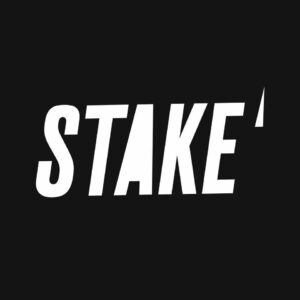
Stake is a popular fintech platform that provides New Zealand investors with seamless access to over 9,500 US stocks, ETFs, government bonds, and ADRs. Known for its user-friendly mobile and web trading platforms, Stake offers fractional shares, extended trading hours, and commission-free limit and stop orders. Regulated by ASIC and the UK FCA, it delivers a secure, fully digital account setup process ideal for beginner and intermediate investors looking to trade US markets at low costs.
While Stake currently does not support joint accounts or foreign markets beyond the US, its standout features include a no-monthly-fee standard account, fractional investing options, and a unique stock lending program to earn passive income. The platform also offers a premium Stake Black membership, unlocking advanced trading tools and the ability to trade on unsettled funds for a monthly fee. Investors should be aware of currency conversion fees on deposits and withdrawals and some limitations around trading fractional shares with limit orders.
Pros:
-
No monthly fees on the standard account with unlimited trades and fractional shares
-
Access to over 9,500 US-listed stocks, ETFs, and OTC securities
-
Extended trading hours allow pre-market and after-hours trading
-
Commission-free limit and stop orders improve trade control
-
Stock lending feature to earn interest on owned shares
-
Simple, fast digital account opening with robust security measures
-
Mobile and web platforms designed for ease of use
-
Local customer support and an active NZ user community
Cons:
-
Limit orders not available for fractional shares — only whole share trading permitted
-
Currency conversion fees (approximately 1%) on deposits and withdrawals
-
Premium Stake Black subscription required for trading on unsettled funds and access to advanced analytics
-
No joint accounts or access to international markets beyond the US
-
Customer support limited to phone and email; no live chat available
-
No currency hedging options, exposing investors to FX risk
6) CMC Markets
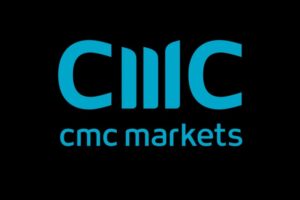
CMC Markets is a prominent online trading platform in Australia, known for its extensive range of financial products and cutting-edge trading technology. Established in 1989, CMC Markets has become a global leader, providing Australian traders with access to over 10,000 financial instruments across various asset classes. The company’s dedication to innovation and customer satisfaction has earned it a strong reputation within the industry.
Key Features:
-
CMC Markets offers various charting tools
-
1-Click Trading
-
CMC Markets provides various account specifications
-
Powerful trading tools
-
Wide range of tradable instruments
Investment Options:
-
Forex
-
Indices
-
Commodities
-
Shares
-
Treasuries
-
Cryptocurrencies
-
ETFs
Trading Platforms:
-
Next Generation
-
MetaTrader 4 (MT4)
-
Mobile Trading Apps
Fees:
-
CMC Markets charges a commission of 0.10% for Share CFD trading with a minimum commission charge of AUD 7.00.
-
The commission for US share CFDs on the CMC Markets platform is 2 US cents per share, subject to a minimum commission charge of $10.
Pros:
-
Competitive forex fees
-
User-friendly web and mobile platforms
-
Comprehensive research and education resources
Cons:
-
Expensive stock CFD trading
-
Only offers CFD trading
-
Limited customer support hours (24/5)
7) ShareSies

Sharesies is a Wellington-based online investing platform designed to make share trading accessible to all New Zealanders, regardless of budget or experience. Since its launch in 2016, Sharesies has expanded its offering from a small range of funds to thousands of investment options across New Zealand’s NZX, Australia’s ASX, and the United States’ major exchanges including NYSE and Nasdaq. The platform is well-known for its fractional share feature, allowing users to invest from as little as 1 cent, making it ideal for beginners and small-scale investors.
With a sleek mobile app and web interface, Sharesies provides a user-friendly experience, featuring access to shares, ETFs, and managed funds from reputable providers like Pathfinder, AMP Capital, and Smartshares. The auto-invest feature supports regular, automated investments with options tailored for ethical, global, and kids portfolios. Investors benefit from subscription plans that reduce transaction fees, while Sharesies Save offers a flexible, high-interest savings account with no lock-in terms.
Sharesies holds client investments securely with third-party custodians and offers features such as kids’ accounts and diversified investment bundles. However, the platform’s 1.9% transaction fee can be high for casual investors, and some advanced features like dividend reinvestment plans are unavailable.
Pros:
- Fractional Investing: Buy shares from just 1 cent, allowing diverse portfolios without large capital.
- Wide Market Access: Trade shares and ETFs across NZX, ASX, and US exchanges in one platform.
- User-Friendly App: Intuitive interface makes investing easy for beginners.
- Auto-Invest: Set up recurring investments with pre-made or custom portfolios.
- Flexible Savings Option: Sharesies Save offers high interest with instant access and no fees.
- Kids Accounts: Specialized accounts to start investing for minors with parental oversight.
- Subscription Plans: Monthly plans reduce transaction fees for frequent investors.
Cons:
- Transaction Fees: Standard 1.9% fee is high compared to some competitors, especially for small or infrequent trades.
- Limited Advanced Features: No dividend reinvestment plans (DRPs) or voting rights for US and ASX shares.
- Customer Support: Mixed reviews with some users reporting slow or limited assistance.
- Foreign Exchange Fees: 0.5% FX fee applies when trading in AUD or USD.
- Custody Restrictions: Shares are held under nominee arrangements, limiting some shareholder benefits.
8) Plus500
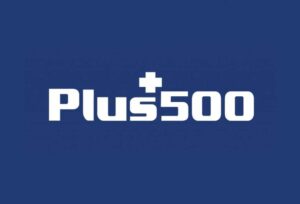
Plus500 is a globally regulated CFD broker offering a proprietary trading platform designed for simplicity and ease of use. Operating through its Australian entity for New Zealand clients, Plus500 provides access to over 2,800 CFD instruments across forex, indices, commodities, shares, ETFs, cryptocurrencies, and options. The platform is available as a web-based application, desktop software, and mobile app, ensuring a consistent experience across devices.
Known for its minimalist interface, Plus500’s platform is ideal for beginner and casual traders who want straightforward trading tools without overwhelming features. Key platform functionalities include market, stop, limit, trailing stop, and guaranteed stop orders, alongside integrated economic calendars and real-time notifications. Plus500 does not support popular third-party platforms like MetaTrader, instead focusing on its own in-house technology.
While spreads tend to be wider than some competitors, Plus500 compensates by charging no commissions on CFD trades and minimal account fees. Its regulatory compliance with top-tier authorities such as ASIC and FCA enhances security and trustworthiness. However, advanced traders seeking lower spreads, copy trading, or automated strategies may find Plus500 less suitable.
Pros:
- Regulated by leading authorities including ASIC, FCA, and CySEC
- Proprietary platform with an intuitive, minimalist design ideal for beginners
- Wide range of over 2,800 CFD instruments across multiple asset classes
- Available on desktop, web, and mobile for seamless trading
- No commissions on CFD trades; all costs embedded in spreads
- Demo account with unlimited usage for risk-free practice
- Guaranteed stop orders and trailing stops for effective risk management
- 24/7 customer support via live chat
- Listed on the London Stock Exchange, ensuring transparency and stability
Cons:
- Spreads generally wider than industry averages, impacting cost-efficiency
- No support for popular third-party platforms like MetaTrader or cTrader
- Lacks features for automated or algorithmic trading
- No copy trading or social trading options available
- Inactivity fees apply after three months without login
- Limited advanced charting and customization capabilities
9) IG
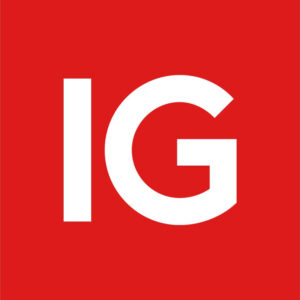
IG Markets is a globally established online trading platform offering New Zealand investors access to a vast array of financial markets. Licensed by the New Zealand Financial Markets Authority (FMA) and regulated by ASIC in Australia, IG provides a secure and reliable environment for trading CFDs, shares, forex, commodities, cryptocurrencies, and more. Since its founding in 1974, IG has grown to support over 320,000 clients worldwide, delivering access to more than 17,000 markets across ASX, NZX, US, European exchanges, and beyond.
The platform features multiple trading interfaces, including IG’s proprietary web and mobile app, MetaTrader 4, ProRealTime, and L2 Dealer, catering to both beginner and advanced traders. IG Markets is known for its competitive pricing, including zero commissions on many share trades and flexible leverage options for CFD traders. Additionally, unique offerings such as weekend trading and pre-IPO speculation provide further trading opportunities not widely available elsewhere.
IG’s strong regulatory oversight, extensive educational resources, and robust customer support make it a compelling choice for New Zealand traders seeking both direct market access and derivatives trading. However, leveraged CFD trading involves significant risk, and currency conversion fees may add to trading costs.
- Pros:
- Access to 17,000+ global markets including NZX, ASX, US, and European shares
- Multiple customizable trading platforms including proprietary and MT4
- Competitive pricing with $0 brokerage on many share trades
- Unique pre-IPO grey market and weekend trading options
- Regulated by FMA and ASIC, ensuring client protection and security
- Comprehensive educational tools and 24/7 customer support
Cons:
- Demo accounts only available for CFD trading, not share dealing
- Currency conversion fees of 0.5% can increase costs for international trades
- Pro account holders waive some retail protections, including negative balance protection
- Market data subscription fees required for real-time share pricing
- Inactivity fee applies after two years without trading activity
10) ShareMeUp

ShareMeUp is a New Zealand-based micro-investing app designed to make investing in NZX-listed shares accessible and affordable. With a minimum investment of just $50 per transaction, ShareMeUp removes traditional barriers to share trading, allowing users to gradually build their share portfolio through flexible contributions on a weekly, fortnightly, or monthly basis. The platform offers curated access to a range of selected NZX companies, accompanied by educational resources such as a dedicated Learn section and integrated financial insights via Reap. ShareMeUp’s straightforward fee structure includes a low brokerage fee capped at 1.98%, making it an attractive option for beginner investors seeking to enter the share market with minimal upfront costs. Signing up is simple through their mobile app, requiring basic ID verification and a linked bank account for direct debit payments.
Pros:
- Low Minimum Investment: Start investing with as little as $50, lowering entry barriers for new investors.
- Flexible Investment Frequency: Choose weekly, fortnightly, or monthly contributions to suit your financial goals.
- Educational Resources: Access market education and company performance data to make informed investment decisions.
- Affordable Fee Structure: Brokerage fees start at 99 cents per trade and are capped at 1.98% of the invested amount.
- User-Friendly Mobile App: Available on both Apple App Store and Google Play for convenient investing on the go.
Cons:
- Limited to Selected NZX Shares: Investment options are restricted to a curated list of NZX-listed companies.
- Third-Party Transaction Fees: Additional fixed and variable fees apply for payment processing, slightly increasing overall costs.
- No Access to International Markets: Focused solely on New Zealand shares, which may limit portfolio diversification.
- Requires Direct Debit Setup: Users must link a bank account capable of direct debits to use the platform.
Leading Platforms Available to NZ Investors
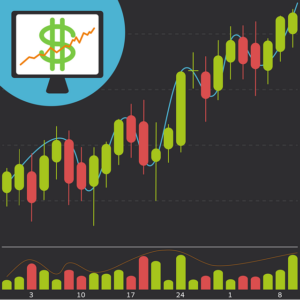
Sharesies stands out as a popular choice for beginners and casual investors. It’s known for its user-friendly interface and low minimum investment requirements. The platform provides access to NZ and US markets, making it suitable for investors who want to diversify their portfolios across both domestic and international stocks.
Hatch specializes in US market access and appeals to investors focused on American equities. It offers extensive educational resources and research tools. The platform charges competitive fees for US trades and provides access to over 3,000 US-listed companies and ETFs.
Tiger Brokers caters to more experienced traders seeking global market access. It provides trading capabilities across multiple international exchanges including US, Hong Kong, and Singapore markets. The platform features advanced trading tools and competitive commission structures.
Stake focuses primarily on US stock trading with zero brokerage fees on trades. It attracts cost-conscious investors who want to build US equity portfolios. The platform offers fractional share trading, allowing investors to purchase portions of expensive stocks.
Key Features Comparison
| Platform | Market Access | Minimum Deposit | Key Strength |
|---|---|---|---|
| Sharesies | NZ, US | $0 | User-friendly interface |
| Hatch | US | $0 | Educational resources |
| Tiger Brokers | Multiple international | Varies | Global market access |
| Stake | US | $0 | Zero brokerage fees |
Additional Platform Options
ASB Securities serves customers who prefer traditional banking relationships alongside their investments. It provides comprehensive access to NZ markets and selected international exchanges. The platform integrates with ASB banking services for seamless fund transfers.
Superhero offers competitive pricing for both Australian and US market access. It appeals to cost-conscious investors who trade frequently. The platform features ETF investments with zero brokerage fees on certain products.
Direct Broking provides full-service brokerage capabilities for serious investors. It offers access to multiple markets and advanced trading features. The platform suits investors who require comprehensive research tools and professional-grade trading capabilities.
Platform Selection Considerations
Investors should evaluate several factors when choosing a trading platform. Market access determines which stocks and exchanges they can trade on. Fee structures vary significantly between platforms and can impact long-term returns. User experience and educational resources matter especially for beginners learning to invest.
Account features like fractional shares enable investors to buy portions of expensive stocks. Mobile app functionality allows trading on-the-go. Customer support availability provides assistance when needed. These elements combine to create the overall platform experience that best matches individual investment goals and trading styles.
Key Features to Consider When Choosing a Trading Platform
Selecting the right share trading platform requires careful evaluation of several critical features that directly impact your investing experience and success. Understanding these key elements helps investors make informed decisions that align with their financial goals and trading style.
Investment Options and Asset Classes
Access to diverse investment options determines the scope of your portfolio building capabilities. Share trading platforms in New Zealand offer varying levels of market access and asset classes:
Market Coverage:
- Domestic markets: NZX (New Zealand Exchange)
- International markets: ASX (Australia), NYSE, NASDAQ (US), and select Asian exchanges
- Limited UK market access through most NZ platforms
Available Asset Types:
- Individual company shares
- Exchange-traded funds (ETFs)
- Managed funds and bonds
- Options and derivatives (select platforms)
Sharesies leads with over 6,500 investment options across multiple markets, while platforms like Hatch focus primarily on US markets. Tiger Brokers provides extensive international coverage including China, Hong Kong, and Singapore markets but doesn’t offer NZX access.
Platform Market Access Comparison:
| Platform | NZX | ASX | US Markets | Other Markets |
|---|---|---|---|---|
| Sharesies | ✓ | ✓ | ✓ | Limited |
| Hatch | ✗ | ✗ | ✓ | ✗ |
| Tiger Brokers | ✗ | ✓ | ✓ | Asia |
| ASB Securities | ✓ | ✓ | ✓ | UK |
Fee Structure and Pricing Models
Understanding platform fees significantly impacts your investment returns, especially for frequent traders or those starting with smaller amounts. NZ platforms employ different pricing strategies:
Common Fee Types:
- Transaction/brokerage fees per trade
- Currency conversion fees (0.5% to 1.5% typical margin)
- Account maintenance fees
- Withdrawal fees
Cost-Saving Features:
- Promotional offers for new customers
- Zero-commission periods on select platforms
- Bulk trading discounts
- Free real-time market data access
User Interface and Mobile Experience
Platform usability directly affects trading efficiency and investor confidence. Modern share trading platforms prioritize intuitive design and comprehensive mobile functionality:
Desktop Experience:
- Clean dashboard layouts displaying portfolio performance
- Advanced charting tools for technical analysis
- Real-time price updates and market news
- One-click order placement systems
Mobile App Features:
- Full trading capabilities matching desktop versions
- Push notifications for price alerts and market movements
- Biometric security (fingerprint/face recognition)
- Offline portfolio viewing capabilities
Sharesies excels with its beginner-friendly interface featuring social investing elements where users can follow other investors’ strategies. Hatch provides educational resources integrated into its platform, helping new investors understand US market dynamics.
Platform Ratings for User Experience:
- Sharesies: Known for simplicity and social features
- Tiger Brokers: Highly rated for customer service and account management
- Hatch: Strong educational component with easy navigation
- Stake: Streamlined interface focused on commission-free trading
Advanced traders appreciate platforms offering customizable layouts, multiple chart types, and integrated research tools. Commission-free brokers like Alpaca Trading provide professional-grade charting despite zero fees, proving that cost savings don’t require sacrificing functionality.
Best Platforms for Beginner Investors

Starting your investment journey doesn’t have to be overwhelming. The right platform can make all the difference by providing educational support and allowing you to start small while you learn the ropes.
Educational Resources and Support
Learning opportunities vary significantly across New Zealand’s share trading platforms. Each platform approaches investor education differently, catering to various learning styles and experience levels.
Sharesies leads with community-driven learning. The platform’s social investing feature lets users share insights and learn from each other’s experiences. This peer-to-peer learning environment helps beginners understand market movements through real-world examples from fellow investors.
ASB Securities provides moderate educational support. While it doesn’t offer extensive tutorials, the platform gives users direct market exposure with straightforward trading tools. Active traders who’ve made transactions within the last 3 months get access to live market data, helping them learn through real-time observation.
Hatch focuses on guided investment education. The platform offers investment guidance and easy-to-use tools specifically designed for those new to US market investing. Their educational content helps demystify international trading for beginners.
Free platforms excel in educational offerings. Alpaca Trading, Firstrade, tastytrade, and ChoiceTrade provide robust educational tools alongside commission-free trading. These platforms offer comprehensive learning resources including:
- Video tutorials on trading basics
- Market analysis guides
- Practice accounts for risk-free learning
- Webinars covering investment strategies
Minimum Investment Requirements
Low barriers to entry make investing accessible to everyone. New Zealand’s trading platforms have revolutionized investing by eliminating traditional high minimum investment requirements.
| Platform | Minimum Investment | Key Benefit for Beginners |
|---|---|---|
| Sharesies | NZD $1 | Start investing with pocket change |
| ASB Securities | NZD $1 | Low entry point for local market access |
| Hatch | Varies | Flexible amounts for US market entry |
| Tiger Brokers | Varies | Global market access at competitive minimums |
| Stake | Varies | Commission-free US trades with low minimums |
Sharesies and ASB Securities tie for the lowest minimum investment at just NZD $1. This ultra-low threshold means you can begin investing with literally any amount, making it perfect for testing the waters without significant financial commitment.
Variable minimums offer flexibility for different investment styles. Platforms like Hatch, Tiger Brokers, and Stake adjust their minimum requirements based on the specific investments you’re interested in. This approach lets beginners start with amounts they’re comfortable with while exploring different markets.
Commission-free platforms remove additional cost barriers. Alpaca Trading, Firstrade, tastytrade, and ChoiceTrade eliminate trading fees on stocks and ETFs, meaning your entire investment goes toward building your portfolio rather than paying transaction costs.
Top Choices for Active Traders
Active traders need platforms that match their fast-paced trading style with sophisticated tools and lightning-fast execution. The best share trading platforms for active traders in New Zealand combine advanced charting capabilities, real-time data feeds, and competitive pricing structures designed for high-volume trading.
Advanced Trading Tools and Analytics
Leading platforms for active traders pack powerful analytical features that transform raw market data into actionable insights. Alpaca Trading stands out with its advanced API access that lets traders build custom algorithms and automated strategies. The platform’s charting tools include over 50 technical indicators, drawing tools, and customizable timeframes that help traders spot patterns quickly.
Tiger Brokers delivers institutional-grade trading tools typically reserved for professional traders. Its platform features complex options analysis tools, including Greeks calculations and volatility charts. Active traders can set up multi-leg options strategies with just a few clicks. The platform also offers depth of market data showing real-time bid and ask prices across multiple levels.
Advanced screening tools help active traders find opportunities faster across thousands of securities. These screeners filter stocks based on technical indicators like RSI, MACD, and Bollinger Bands. Traders can save custom screens and receive alerts when stocks meet specific criteria.
| Platform | Technical Indicators | API Access | Options Analysis | Custom Alerts |
|---|---|---|---|---|
| Alpaca Trading | 50+ | Yes | Basic | Yes |
| Tiger Brokers | 40+ | Limited | Advanced | Yes |
| tastytrade | 35+ | No | Advanced | Yes |
| Firstrade | 30+ | No | Moderate | Yes |
Risk management tools protect active traders from significant losses. Stop-loss orders, trailing stops, and bracket orders execute automatically based on preset conditions. Some platforms offer advanced order types like one-cancels-other (OCO) and fill-or-kill orders that give traders precise control over their entries and exits.
Real-Time Market Data Access
Speed matters when you’re capitalizing on short-term price movements. Top trading platforms deliver streaming quotes with millisecond latency that keep active traders ahead of market shifts. Real-time Level 2 data shows the full order book depth, revealing supply and demand dynamics that drive price action.
Streaming news feeds integrate directly into trading platforms, delivering market-moving headlines as they break. Platforms like Tiger Brokers and ASB Securities provide news from multiple sources including financial newswires and analyst reports. Smart filters let traders focus on news relevant to their watchlists and positions.
Real-time alerts notify traders instantly when specific conditions occur. Price alerts trigger when stocks hit target levels. Volume alerts flag unusual trading activity that might signal institutional moves. Technical alerts activate when indicators generate buy or sell signals. These notifications arrive through multiple channels including mobile push notifications, emails, and platform pop-ups.
Market data coverage extends beyond basic quotes to include:
- Time and sales data showing every transaction
- Options chains with real-time Greeks
- Market depth across multiple exchanges
- Pre-market and after-hours trading data
- International market feeds for global trading
Reliable data feeds become crucial during volatile market conditions. The best platforms maintain redundant data connections that prevent outages during high-volume trading periods. Low-latency infrastructure ensures orders execute at the prices traders see on their screens, reducing slippage that can erode profits in fast-moving markets.
International Trading Platforms Available to Kiwis
International trading platforms have expanded investment opportunities for New Zealand investors beyond the local NZX market. These platforms provide access to global markets and diverse investment options that weren’t previously available to retail investors.
Global Market Access
International brokers offer New Zealand investors unprecedented access to financial markets worldwide. Interactive Brokers leads the pack by providing access to over 150 markets across 33 countries, including stocks, options, futures, forex, bonds, and funds. This comprehensive coverage allows Kiwi investors to build truly diversified portfolios across multiple asset classes and geographic regions.
Leading platforms serve different market specializations:
- US Market Specialists: Alpaca Trading, Firstrade, tastytrade, and ChoiceTrade focus primarily on US exchanges (NYSE, NASDAQ, CBOE), offering commission-free trading on stocks and ETFs
- Asia-Pacific Focus: Tiger Brokers excels in Asian market access, covering Singapore, Hong Kong, China, Australia, and the US, though it doesn’t offer NZX trading
- European Access: Swissquote provides strong European market coverage alongside global offerings, benefiting from Swiss banking regulations
- Multi-Asset Platforms: Admirals and IG specialize in forex and CFD trading across global markets, offering leveraged products for experienced traders
Market availability varies significantly between platforms:
| Platform | Markets Available | Asset Classes |
|---|---|---|
| Interactive Brokers | 150+ markets in 33 countries | Stocks, ETFs, options, futures, forex, bonds |
| Tiger Brokers | US, Australia, Hong Kong, Singapore, China | Stocks, ETFs, options |
| Alpaca Trading | US exchanges only | Stocks, ETFs, crypto |
| Swissquote | Global markets with European focus | Stocks, ETFs, forex, commodities |
| NinjaTrader | Global futures markets | Futures, forex, stocks |
These platforms typically offer extended trading hours for major markets, allowing Kiwi investors to trade during convenient times despite time zone differences. Advanced platforms like Interactive Brokers and NinjaTrader provide algorithmic trading capabilities and API access for automated strategies.
Currency Exchange Considerations
Currency conversion represents a significant cost factor when investing internationally through New Zealand-based accounts. Exchange rates and conversion fees can substantially impact investment returns, particularly for frequent traders or those making smaller investments.
Conversion fee structures vary widely among platforms:
- Competitive Rates: Tiger Brokers charges 0.35% on currency conversions, among the lowest in the industry
- Standard Rates: Most platforms charge between 0.5% to 1.5% on the mid-market exchange rate
- Premium Services: Some brokers offer tiered pricing where high-volume traders receive better conversion rates
Currency risk management becomes crucial for international investing. Exchange rate fluctuations between the NZD and foreign currencies can enhance or diminish returns independently of investment performance. A 5% currency movement can significantly impact overall returns on international investments.
Key strategies for managing currency costs include:
- Batch Transactions: Consolidating trades reduces the frequency of currency conversions
- Multi-Currency Accounts: Platforms like Interactive Brokers offer accounts that hold multiple currencies, eliminating conversion needs for reinvestments
- Natural Hedging: Maintaining investments in multiple currencies can provide some protection against single-currency exposure
- Fee Comparison: Calculate total costs including both trading fees and currency conversion charges when selecting platforms
International platforms often provide real-time currency conversion calculators and historical exchange rate data to help investors understand the true cost of their trades. Some sophisticated platforms offer currency hedging instruments for investors seeking to minimize exchange rate risk on their international portfolios.
Low-Cost and Commission-Free Options
The rise of commission-free trading has transformed how New Zealanders invest in shares. Several platforms now offer zero-commission trades on stocks and ETFs, making investing more accessible than ever before.
Commission-Free Trading Platforms
Alpaca Trading leads the pack with completely free stock and ETF trading. The platform’s advanced API and charting tools make it particularly attractive for tech-savvy investors who want to automate their trading strategies. While it focuses mainly on US stocks, the zero-commission structure applies to all trades without hidden fees.
Firstrade offers another compelling option for cost-conscious investors. The platform provides free trading across stocks, ETFs, mutual funds, and even options. Its comprehensive educational tools help beginners learn while they invest, all without paying commissions on their trades.
ChoiceTrade simplifies the investment process with commission-free stock and ETF trades. The platform’s straightforward account opening process and user-friendly interface make it ideal for investors who want to start trading quickly without complex fee structures.
Low-Cost Trading Alternatives
Not all platforms offer completely free trading, but several provide extremely competitive pricing that rivals commission-free options.
| Platform | Transaction Cost | Special Features | Best For |
|---|---|---|---|
| Superhero | $2 per trade | Free market data | Casual investors |
| Tiger Brokers | First 4 trades free/month | Global market access | International traders |
| Sharesies | No commissions | $1 minimum investment | Beginners |
Superhero charges just $2 per US or Australian share transaction with no platform fees. This flat-rate pricing structure means investors always know their costs upfront, regardless of trade size.
Tiger Brokers offers a unique hybrid model. Investors get their first four US or Australian share trades free each month, with subsequent trades starting at $2. The platform’s access to multiple global markets (US, Australia, Hong Kong, Singapore, and China) makes it valuable for internationally-focused portfolios.
Understanding the True Cost of “Free”
While commission-free platforms eliminate trading fees, investors should consider other potential costs:
Currency conversion fees can impact returns when trading international shares. Most platforms charge between 0.5% and 1% for currency conversions, which adds up for frequent traders.
Market spreads exist on all platforms. The difference between buy and sell prices represents an implicit cost that investors pay regardless of commission structure.
Account maintenance fees may apply on some platforms. Always check whether platforms charge monthly or annual fees that could offset commission savings.
Choosing the Right Low-Cost Platform
Selecting between commission-free and low-cost options depends on your trading style and investment goals.
High-frequency traders benefit most from commission-free platforms like Alpaca Trading or Firstrade. These platforms eliminate the cost burden of multiple daily or weekly trades.
Buy-and-hold investors might find platforms like Superhero or Tiger Brokers equally attractive. The minimal fees won’t significantly impact long-term returns, especially if the platform offers better market access or tools.
Small-dollar investors should prioritize platforms like Sharesies that allow investments from just $1. Commission-free trading becomes especially important when investing smaller amounts, as fixed fees can eat into returns proportionally more.
The democratization of investing through low-cost and commission-free platforms has opened doors for New Zealand investors at all levels. Whether you’re starting with $1 or $10,000, these platforms ensure more of your money goes toward building wealth rather than paying fees.
Platforms with Best Research and Analysis Tools
Successful share trading requires more than just buying and selling stocks—it demands comprehensive research capabilities and analytical tools to make informed investment decisions. New Zealand investors seeking platforms with superior research and analysis features have several standout options that combine advanced market insights with user-friendly interfaces.
Leading Research-Focused Trading Platforms
Interactive Brokers emerges as the top choice for research-driven investors in 2025. The platform delivers an extensive suite of advanced research tools alongside extremely low fees and access to a vast range of investment products. Traders benefit from institutional-grade analysis capabilities that were once exclusive to professional investors.
Firstrade distinguishes itself by combining commission-free trading with solid research infrastructure. The platform’s educational materials complement its research tools, creating a comprehensive environment for investors who want to learn while they trade. Both novice and experienced traders find value in Firstrade’s balanced approach to market analysis.
Alpaca Trading specializes in providing fantastic charting capabilities and deep market insights. The platform’s strength lies in its API trading service, which allows tech-savvy investors to automate their strategies based on research findings. Advanced traders particularly appreciate the platform’s ability to handle complex analytical requirements.
Comprehensive Analysis Tool Features
| Platform | Research Strengths | Analysis Tools | Best For |
|---|---|---|---|
| Interactive Brokers | Advanced research suite | Professional-grade analytics | Serious investors |
| Firstrade | Solid research & education | Integrated learning tools | All experience levels |
| Alpaca Trading | Fantastic charting | API-enabled analysis | Tech-savvy traders |
| MEXEM & CapTrader | Many research tools | Wide product analysis | Diverse portfolios |
| Sharesies | Social insights | Community-driven research | Collaborative investing |
MEXEM and CapTrader both offer extensive research capabilities with low stock and ETF fees. These platforms provide traders with multiple analytical perspectives across their wide selection of products, helping investors make data-driven decisions without breaking the bank on trading costs.
Social and Educational Research Resources
Sharesies takes a unique approach by incorporating social features into its research ecosystem. The platform’s clean interface makes complex market data accessible to beginners, while its community features enable investors to share insights and collaborate on research. This social dimension adds valuable context to traditional market analysis.
IG stands out with its first-class web platform that seamlessly integrates educational resources with research tools. The platform’s superb educational materials help investors understand how to apply analytical insights to their trading strategies. CMC Markets similarly excels in providing advanced research capabilities, particularly for forex traders who need specialized analytical tools.
Evaluating Research Tool Quality
When selecting a platform based on research capabilities, investors should consider several critical factors:
Data depth and coverage – The best platforms provide real-time market data, historical charts, and comprehensive company information across multiple markets.
Tool sophistication – Advanced screening tools, customizable indicators, and complex options analysis separate professional-grade platforms from basic services.
Educational integration – Platforms that combine research tools with educational content help investors understand how to interpret and act on analytical insights.
User accessibility – Even the most powerful research tools prove worthless if they’re too complex to use effectively. The best platforms balance sophistication with usability.
Making Research Work for Your Trading Style
Different trading styles demand different research approaches. Day traders need real-time data feeds and advanced technical analysis tools, while long-term investors benefit more from fundamental analysis capabilities and comprehensive company research reports.
Active traders typically gravitate toward platforms like Interactive Brokers and Alpaca Trading, which offer the speed and depth required for rapid decision-making. These platforms provide customizable algorithms and complex screening tools that help identify trading opportunities quickly.
Value investors and those taking a more measured approach often prefer platforms like Firstrade and MEXEM, which excel at providing thorough fundamental analysis alongside their technical tools. These services help investors dig deep into company financials and market trends.
The integration of research tools with actual trading capabilities proves crucial for effective investing. Platforms that seamlessly connect analysis to execution enable investors to act quickly on their research findings without switching between multiple applications or interfaces.
As the New Zealand share trading landscape continues to evolve, platforms that invest in research and analysis capabilities position themselves as essential partners for serious investors. Whether you’re analyzing local NZX stocks or exploring international markets, choosing a platform with robust research tools can significantly impact your investment success.
Security and Regulatory Compliance
Share trading platforms in New Zealand operate under strict regulatory frameworks designed to protect investors’ funds and personal information. The Financial Markets Authority (FMA) serves as the primary regulator, enforcing comprehensive standards that ensure platform reliability and investor protection.
FMA Regulatory Framework
The FMA oversees all share trading platforms operating in New Zealand through two main regulatory pathways. Platforms must either register under the Financial Service Providers Act or obtain a Financial Product Market License, depending on their transaction volumes and service offerings.
Key regulatory requirements include:
- Segregated client accounts – Customer funds must be held separately from company operational funds
- Anti-money laundering (AML) compliance – Platforms must verify customer identities and monitor suspicious activities
- Privacy protection standards – Personal data must be secured according to New Zealand privacy laws
- Regular audits and reporting – Platforms submit periodic compliance reports to the FMA
Platform Security Measures
Leading platforms implement multiple security layers to protect investor accounts and transactions. These measures go beyond regulatory minimums to provide comprehensive protection.
| Security Feature | Implementation | Benefit |
|---|---|---|
| Two-factor authentication (2FA) | Required for account access and trades | Prevents unauthorized access |
| Encryption protocols | 256-bit SSL encryption for all data | Protects sensitive information |
| Segregated trust accounts | Client funds held at major banks | Ensures fund safety |
| Regular security audits | Third-party penetration testing | Identifies vulnerabilities |
Investor Protection Standards
New Zealand’s regulatory framework provides several key protections for share traders. The FMA requires platforms to maintain adequate capital reserves and implement robust risk management systems.
Platforms must demonstrate:
- Financial stability through regular capital adequacy assessments
- Operational resilience with backup systems and disaster recovery plans
- Transparent pricing with clear fee disclosures and no hidden charges
- Fair treatment policies ensuring equal access to trading opportunities
Compliance Verification
Investors can verify a platform’s regulatory status through the FMA’s Financial Service Providers Register. This public database shows:
- Registration status and license type
- Regulatory compliance history
- Any enforcement actions or warnings
- Contact information for complaints
Platforms like Sharesies, Hatch, Tiger Brokers, and Stake all maintain active FMA registrations and comply with New Zealand’s financial service regulations. Each platform undergoes regular compliance reviews to maintain their operating licenses.
Data Protection and Privacy
Share trading platforms must comply with the Privacy Act 2020, which governs how personal information is collected, stored, and used. Platforms implement:
- Data minimization – Only collecting necessary information for account operation
- Access controls – Limiting employee access to customer data
- Breach notification – Informing customers within 72 hours of any data breaches
- Data retention policies – Deleting unnecessary information after specified periods
Risk Management Protocols
Regulated platforms maintain comprehensive risk management systems to protect investors during market volatility. These protocols include:
- Circuit breakers that halt trading during extreme market movements
- Margin requirements that prevent excessive leverage
- Negative balance protection ensuring traders can’t lose more than deposited
- Real-time monitoring of unusual trading patterns or system anomalies
The combination of FMA oversight, platform security measures, and investor protection standards creates a robust framework for safe share trading in New Zealand. Regular updates to regulations ensure the framework evolves with emerging threats and technological advances.
How to Get Started with Share Trading
Getting started with share trading in New Zealand doesn’t require extensive financial knowledge or large capital investments. Modern trading platforms have simplified the process into manageable steps that anyone can follow.
Account Setup Process
Opening a share trading account takes just minutes through most New Zealand platforms. Investors start by visiting their chosen platform’s website or downloading the mobile app where they’ll find a straightforward registration process.
The setup typically requires:
- Personal information: Full name, date of address, and contact details
- Identity verification: Upload of driver’s license or passport to comply with Anti-Money Laundering regulations
- Tax details: IRD number for New Zealand tax reporting
- Investment profile: Questions about trading experience and financial goals
Most platforms verify accounts within 24-48 hours. During this time, investors can explore the platform’s educational resources and familiarize themselves with the interface. Platforms like Sharesies and ASB Securities streamline this process through their user-friendly apps, while others may require additional documentation for international market access.
Funding Your Trading Account
After account approval, investors need to deposit funds before making their first trade. New Zealand platforms offer several funding methods to accommodate different preferences.
Common funding options include:
- Bank transfers: Most popular method with no fees from the platform
- Debit/credit cards: Instant funding but may incur small processing fees
- Direct debit: Automated regular deposits for dollar-cost averaging strategies
| Funding Method | Processing Time | Typical Fees | Best For |
|---|---|---|---|
| Bank Transfer | 1-3 business days | Free | Large deposits |
| Debit Card | Instant | 0-2% | Quick trades |
| Credit Card | Instant | 2-3% | Emergency funding |
| Direct Debit | 1-2 business days | Free | Regular investing |
Currency conversion becomes important when investing in international markets. Platforms charge FX fees ranging from 0.5% to 1.5% of the transaction amount. For US market investments, these fees apply both when buying shares and receiving dividends. Some platforms like Hatch offer competitive FX rates at 0.89%, while others may charge up to 1.5% per conversion.
Investors should consider starting with smaller amounts to test the platform’s functionality. Many platforms allow investments as low as $1, making it easy to practice without significant financial risk. As confidence grows, investors can increase their funding amounts and explore different markets available through their chosen platform.
Key Takeaways
- Multiple platform options cater to different investor needs – Sharesies excels for beginners with $1 minimum investments and social features, while platforms like Tiger Brokers and Interactive Brokers serve advanced traders with global market access and sophisticated tools
- Commission-free trading has democratized investing – Platforms like Alpaca Trading, Firstrade, and Stake offer zero-commission trades on US stocks and ETFs, though investors should consider hidden costs like currency conversion fees (0.5-1.5%)
- Platform fees vary significantly based on structure – Sharesies uses percentage-based fees favoring small trades, Hatch charges flat fees benefiting larger transactions, and Tiger Brokers offers 4 free trades monthly
- Tax implications depend on trading frequency – Frequent traders may be classified as “share traders” with gains taxed as income, while long-term investors typically avoid capital gains tax in New Zealand. Be sure to seek advice from an accountant or tax advisor to get up-to-date insights into your obligations.
- Security and FMA regulation provide investor protection – All legitimate platforms must maintain segregated client accounts, implement two-factor authentication, and comply with anti-money laundering requirements
- Getting started requires minimal barriers – Most platforms allow account setup within 24-48 hours, accept funding via bank transfer or cards, and enable investing with as little as $1
Conclusion
Choosing the right share trading platform can significantly impact an investor’s success in New Zealand’s evolving financial landscape. Each platform offers unique advantages tailored to different investment strategies and experience levels.
Whether someone’s just starting with pocket change or they’re an experienced trader seeking advanced tools and global market access, there’s a platform that fits their needs. The democratization of investing through these platforms means that building wealth is no longer reserved for the privileged few.
Smart investors will take time to evaluate their goals, compare fee structures, and test platform features before committing. They’ll also consider factors like educational resources, tax reporting capabilities, and security measures that protect their investments.
The future of investing in New Zealand looks bright with these innovative platforms leading the way. By selecting the right platform and staying informed about regulatory requirements, investors can confidently navigate the markets and work toward their financial goals.
Disclaimer: This material does not constitute financial advice or an endorsement of futures, stocks, ETFs, CFDs, options, or any particular company, service, or offering. It is not intended to be used as investment advice or to make any recommendations. Futures, equities, ETFs, and options trading include a high risk of loss and are therefore not suitable for all investors. Trading CFDs and forex on leverage carries a larger chance of losing money quickly. Past performance is not indicative of future results. Before making any deals, consider your specific situation and get personal guidance. Visit the provider’s website to see the Product Disclosure Statement (PDS) and Target Market Determination (TMD) for the product and consider talking to a financial professional.
Factors we took into consideration when creating this article:
- We developed criteria for selecting exchanges to evaluate, such as reputation, trading volume, user base, regulatory compliance, and the number of assets available to trade, as well as their websites to confirm they had licenses and compliance to operate in New Zealand, as well as other things like KYC protocols.
- Examined each platform’s security features, such as anti-phishing codes and 2FA codes, as well as its overall reputation for handling cyber security in accordance with industry best practices.
- Checked each platform for user-friendly design interfaces to ensure platforms are simple for newcomers to grasp.
- We gathered data on each exchange by visiting their respective website, reading user reviews, and checking for recent news or events pertaining to the platform.
Why trust AGR Technology
Alessio Rigoli launched AGR Technology in 2013 with the intention of focusing on YouTube and blogging on technology issues such as Android, Cyber Security, Blockchain, and EdTech. Since then, the business has grown to cover services such as website creation, hosting, software development, and digital marketing. AGR Technology helps clients in a variety of industries by delivering creative and high-quality technology solutions to assist them in growing.
Frequently Asked Questions
Which share trading platform is best for beginners in New Zealand?
Sharesies is ideal for beginners with its user-friendly interface and $1 minimum investment. It offers community-driven learning and makes investing accessible to everyone. ASB Securities is another beginner-friendly option with low minimums and educational resources.
What are the cheapest trading platforms in NZ?
Alpaca Trading and Firstrade offer commission-free trading on US stocks and ETFs. Stake provides zero brokerage fees on US trades, while Superhero offers competitive pricing for both Australian and US markets. Consider currency conversion fees when comparing costs.
Can I trade US stocks from New Zealand?
Yes, platforms like Hatch, Stake, Tiger Brokers, and Interactive Brokers provide access to US markets. These platforms handle currency conversion and offer various US stocks and ETFs. Be aware of exchange fees and tax implications for foreign investments.
How much money do I need to start share trading?
You can start with as little as $1 on platforms like Sharesies and ASB Securities. Most platforms have low or no minimum deposits. Starting small allows you to learn without significant financial risk while building your investment knowledge.
Are share trading platforms regulated in New Zealand?
Yes, the Financial Markets Authority (FMA) regulates trading platforms operating in New Zealand. Platforms must comply with anti-money laundering laws, maintain segregated client accounts, and meet strict security standards to protect investors.
What fees should I expect when trading shares?
Common fees include brokerage fees (per trade), currency conversion fees (for international trades), and account maintenance fees. Some platforms offer commission-free trading but may charge for currency conversion or premium features. Always check the fee structure before choosing a platform.
Source(s) cited:
[Online]. Available: https://www.capterra.co.nz/reviews/1006508/etoro. [Accessed: 10-Aug.-2025].
Y. Chen, (2025). eToro is rated “Great” with 4.2 / 5 on Trustpilot [Online]. Read Customer Service Reviews of www.etoro.com. Available at: https://au.trustpilot.com/review/www.etoro.com (Accessed: 10 August 2025).
Jean, Jean Cadonel. “BlackBull Markets Reviews 2,314” Read Customer Service Reviews of blackbull.com, 7 Aug. 2025, au.trustpilot.com/review/blackbull.com. Accessed 10 Aug. 2025.
PhillipC, CC BY 2.0, via Wikimedia Commons

Alessio Rigoli is the founder of AGR Technology and got his start working in the IT space originally in Education and then in the private sector helping businesses in various industries. Alessio maintains the blog and is interested in a number of different topics emerging and current such as Digital marketing, Software development, Cryptocurrency/Blockchain, Cyber security, Linux and more.
Alessio Rigoli, AGR Technology
![logo-new-23[1] logo-new-23[1]](https://agrtech.com.au/wp-content/uploads/elementor/thumbs/logo-new-231-qad2sqbr9f0wlvza81xod18hkirbk9apc0elfhpco4.png)
